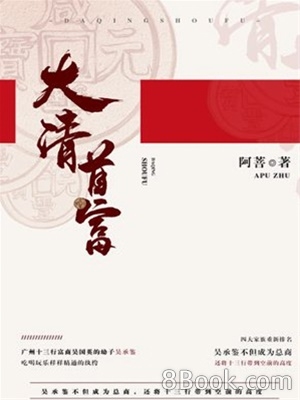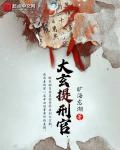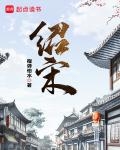Chapter 387: Changes in Xi'an (V)
General Fu Qing was so shocked that he broke out in a sweat when he heard that the Chinese army had suddenly bypassed the Qing army's river bank defenses and went around to the river bank between Wuhu and East and West Liangshan to insert troops and horses. The distance between the two places was only thirty or forty miles, how could the Chinese army suddenly cut in!
However, things had already happened, and General Fu Qing immediately ordered to send troops to resolve this serious problem while the Chinese army was still unstable.
However, when the Qing army arrived, there was no sign of the Chinese army on the battlefield near the river bank. There were only some bright red flags tied at some locations on the battlefield made of sacks. The flags fluttered in the breeze from the river.
Of course, what the Qing army could not see was that the Chinese army engineers were digging quickly to transform this very simple position into a better defensive position.
The Qing army immediately began a tentative attack. The Chinese army did not show their bodies this time, and easily defeated the Qing army that came up in formation just from the firing holes.
The Qing army was not discouraged by this and began to organize columns, trying to get to the side of this seemingly unreliable position and sneak into the blind spot of the shooting hole from close range.
This was also within the consideration of the Chinese Army. The so-called bastions of this era were the original defensive system of the city wall, which was transformed into a polygon, making the number of attackers on any side smaller.
If it were just this, it would have limited practical significance. The most important means of attack for a bastion is for each corner to extend a certain distance into the position. The defenders on this extension line can launch a flank attack on the enemy attacking the two nearby sides.
This kind of salient may seem to be attacked by the enemy, but in fact it is not necessarily the case. As long as it is not a meaningless overly long protrusion, the salient can receive fire support from the walls on both wings.
When building trenches, the Chinese army dug out such a pattern for the first time. Everyone was not very confident, so the troops led by members of the Ministry of Rites were responsible for these bunkers. Many obstacles were set up outside the bunkers.
The Ministry of Rites was responsible for the pre-war training, and everyone learned the key points. So when the Chinese officers and soldiers saw that the Qing army did not try to attack the bunkers in the salient first, but bypassed those obstacles and approached the trenches that seemed to have no defenses, they were dumbfounded.
Those soldiers were better off, after all, they only had to follow the squad leader's orders. The squad leaders knew what was going on, and they kept looking at the platoon leaders. The platoon leaders didn't know if the Qing army was playing tricks, but they looked like these Qing soldiers were heading for death.
Although it is a good thing for the enemy to fall into the trap, the fact that they foolishly walked into the trap itself will also surprise the hunters. After all, when hunting, the prey are extremely alert, and the slightest movement can make them flee for their lives. It is rare to see prey that thinks they have succeeded.
When the Qing army completely entered the encirclement area and even tried to sabotage from the blind spot of the front shooting hole, the Chinese army could no longer watch. The shooting holes from the salient bunkers began to fire fiercely, and the Qing army was caught off guard and many were knocked down. The Qing army that survived fled back like rabbits. This exposed them to the front gun muzzle, and in the end, none of the dozens of people who came up survived.
This frightened the Qing army generals. They quickly changed direction, commanding the remaining artillery to bombard the Chinese army's positions, and at the same time sent the Qing army to launch a group attack.
When the Chinese army heard the sound of artillery fire, they hid in the cat-ear holes they had learned from the Qing army. This thing is really useful. As long as there are observers on the position, they can guard against various artillery attacks, including those of the Chinese army.
When the Qing army group rushed to the front, the Qing army's artillery bombardment stopped. The Chinese army used the firing holes to fire back at the Qing army.
The tenacity of the Qing army was surprising. They actually fought for five minutes before they could not help but retreat. The Qing army that was fleeing in a swarm suddenly fell to the ground in rows, and those who were not dead immediately stopped. Under the fierce curses and threats of the Eight Banners Army's supervisory team behind them, they turned back and continued to fight the Chinese army.
At this time, the surrendered Qing army general Lu Changdai was also on the Huaxia army's position. As the person who provided the Qing army with the deployment, he had to go with them. If he lied, he would be executed on the spot.
Seeing the miserable state of the Qing army, Lü Changdai, who was originally driven to surrender by revenge, wiped his forehead several times. The Qing army now used the Green Camp as the main force of the attack, and Lü Changdai was a captain of the Green Camp. Generally speaking, the Eight Banners of the Qing army were responsible for supervising the army, and when the Green Camp soldiers fought desperately to decide the victory, the Eight Banners Army would go out to grab the credit.
Even so, the Jiangnan Qing army had never fought such a brutal field battle, and the supervision team had never really been used. Unexpectedly, the Eight Banners Army began to supervise the battle. Lu Changdai figured it out. If he hadn't escaped, he would have to fight the Huaxia Army to death under the pressure of the Eight Banners Army's muskets. It was really a battle to the death.
But Lu Changdai's feelings might not be right. After only fighting for half a day, the Qing army could no longer fight. A tough battle with more than 3,000 casualties in half a day was too much for the Qing army to bear.
Fu Qing even personally visited the battlefield and saw that the Chinese army's position looked simple, but was surprisingly solid. No matter what method the Qing army used to attack, including using smoke to obscure the view, it did not slow down the Chinese army's counterattack.
Especially in the evening, the Qing army scouts came to report that the Huaxia army began to take a long detour, intending to outflank the Qing army from behind. When Fu Qing heard the news, he immediately mobilized his troops to intercept them.
Lei Hu originally wanted to mobilize the Qing army. For three days, Lei Hu continuously sent troops to disrupt the Qing army. He estimated that the Qing army had been misled by the news from various places and no longer regarded the defense of East and West Liangshan as the primary task. Lei Hu ordered his troops to advance along the north of the Yangtze River and launched a fierce attack on the north of the Yangtze River in East and West Liangshan.
The Qing army set up a pontoon bridge between East and West Liangshan, trying to use this strategic pass to block the Chinese army's passage through the Yangtze River.
After hearing about the fierce attack of the Huaxia Army, Fu Qing realized that he had been tricked. When he arrived at the Yangtze River, he saw a scene that Fu Qing had never seen before.
The Chinese military ships have already reached the long floating bridge. The floating bridge is the part above the water that is connected by more than a dozen iron chains as thick as arms. The boats under the wooden planks of the floating bridge have dropped anchors, firmly fixing the boats so that they will not move under the impact of the river water.
The three dark warships threw out more than a dozen hooks with large iron chains, which firmly hooked the iron chains. Then the big ships rose up, and the paddle wheels of the ships changed the direction of rotation, from upstream to downstream.
Dozens of large iron chains were immediately pulled downstream. But they did not break immediately. Instead, the warship was dragged by the iron chains and even shifted horizontally. It was like a galloping horse being dragged by someone and had to move left and right helplessly.
With the crackling sound, the wooden piles on the river bank, which were as thick as thighs, broke. They were already bearing the force of the river water, and now with the addition of external force, they finally exceeded the bearing capacity of the wooden piles. With the crackling sound like a wail, the wooden piles reached the end of their function.
Without these fulcrums, the boats in the river flipped over. The boats that could carry more than a dozen people stood upright, stood sideways, or even flipped over like puppets. They looked like small toys. The wooden boards on the boats flew in the air like broken pieces of wood.
General Fu Qing was dumbfounded. Although the commander of the Chinese military ship responsible for pulling down the pontoon bridge was excited, he did not lose his rationality.
The three gunboats were not tasked with pulling down the pontoon bridge. Such a huge structure as the pontoon bridge could not be pulled down by three gunboats.
The floating bridge was already bearing the huge force of the river water, and the three gunboats were only destroying the force of the floating bridge, causing the floating bridge to be destroyed by the river water. Seeing that their goal was achieved, the three gunboats disconnected the iron chains connected to the boats and quickly went down the river.
Even though it was the remains of a floating bridge, the gunboat with steel plates installed on it would still have the potential to sink. The best strategy was to escape now while the floating bridge had not collapsed.
Sure enough, the floating bridge did not collapse immediately. But it continued to collapse. The Qing army could not repair it at night and could only watch the collapse continue. When daybreak came, only a few fragments remained on the river, still stubbornly lingering in the water.
But at this moment, the Chinese army's gunboats from the lower reaches of the Yangtze River came over again. They passed the wreckage, passed the East and West Liangshan Mountains, and headed upstream.
At this point, Lei Hu knew he had won. If the Qing army's last field army did not retreat at this time, it would be under constant threat of being surrounded and annihilated by the Huaxia army. With Fu Qing's performance so far, he would only retreat.
There was a slight pain in his heart. Lei Hu recalled that he would write to Qian Qing when he was sure of victory or when he was hesitant. In the past, whenever he thought about receiving a letter from Qian Qing, Lei Hu would feel warm in his heart.
The warm feeling is still there, but it feels like something is tearing my chest apart.
Lei Hu didn't want to write at first, but he couldn't help it in the end. He wrote the letter in the most businesslike tone, which was a style he had never used before. This made him feel better.
Six days later, when Fu Qing was already retreating in a panic, a letter was placed on top of the documents sent by the staff officer. Lei Hu suspected that he had seen it wrong. It turned out to be a letter from Qian Qing. There was no way he could have mistaken the beautiful handwriting.
After putting the letter in his arms, Lei Hu continued his work as if he had not seen the letter. For two consecutive days, Lei Hu concentrated on commanding the battle. He only touched the envelope with his hand when he lay down at night.
Lei Hu knew that he didn't want to read the letter because he was angry, but because he was afraid to read it. If the letter just scolded Lei Hu, it would be fine. But what if Qian Qing just wrote to him as if he were a stranger? Being hated by Qian Qing was much better than being regarded as a passerby by Qian Qing.
However, Lei Hu did not survive three full days. On the afternoon of the third day, the defeated Qing army had already fled westward along the narrow road on the south bank of the Yangtze River. All the battles were left to the various divisions to deal with on their own. When the headquarters finally relieved itself of the heavy responsibility and began to send people to count the prisoners and captured spoils, Lei Hu, who had nothing to do, finally went to a secluded place where no one was around and opened the letter.
"You finally wrote to me, and I'm finally not afraid anymore. I was still worried about what I would do if you ignored me again in the future!"
When the meaning of the familiar font was understood, Lei Hu felt relieved. He couldn't help but raise his hands high, and felt that tears were about to flow out again.
Trying his best to suppress his emotions, Lei Hu read it word by word, "Tiger, you are my caring friend and comrade-in-arms. You are also very important to me. If you are killed, I will definitely avenge you. If I am killed, I know you will also avenge me. However, sir is someone I can never let go of. In this matter, for my own sake, I will never apologize to you. Even if it hurts your heart, I will not apologize."
Lei Hu couldn't help but laugh out loud, and tears flowed out a few seconds later.
This is how Qian Qing should be. If Qian Qing apologizes, she won't be herself anymore.
Although he was in tears, Lei Hu was not angry at all. Before reading the letter, Lei Hu had thought of all the words that frightened , but none of those words appeared in the letter.
After calming down for a while, Lei Hu wiped away his tears and continued reading. "Tiger, ever since we followed Mr., our fates have been tied together and cannot be separated. These days, I have been very scared, afraid that you would hate Mr. because of this. But I didn't know how to tell you. After reading your letter, I am sure that you don't hate me, so I dare to tell you. Tiger, never hate Mr. We all have our own choices, but under the banner of the Huaxia Dynasty, we are our own people, comrades-in-arms who share life and death. If you blame me, or even scold me, I will listen. I will never be angry. But if you hate Mr., that would be a betrayal of the days when we once went through life and death together."
Lei Hu lowered his head. These days, he was struggling in his heart. Although every time he thought that if Huo Chong died, he would have a chance. However, when he thought of this, Lei Hu also felt a strong pain. He even knew that it was wrong to think so.
Such suffering is no better than losing Qian Qing. If he loses Qian Qing, he will just lose the person he admires. But betraying Huo Chong means denying everything Lei Hu has done before.
The self-blame that seemed to tear at his chest began to dissipate unconsciously, and Lei Hu found that he could finally think of Huo Chong without hatred. It can only be said that there is no hatred, but the sour feeling still exists.
However, there was only a short paragraph left on the letter, and Lei Hu read it all at once, "Tiger, I know your intentions. I am very grateful. So after you win, come back to Xuzhou with your head held high. I will treat you to a meal. I look forward to seeing you soon. Qian Qing."
Pressing the letter to his chest, Lei Hu felt no more fear. Before seeing the letter, Lei Hu was afraid that he would never be able to go back to the past after reading it. Although the past has changed, at least he can continue to live his life as a friend and comrade.
The thought of never being able to go back to the past once weighed on my chest like a mountain, but now it has finally been removed.
Lei Hu couldn't help but feel a little scared. If he didn't write to Qian Qing as he did before, would things go in the direction Lei Hu feared the most ? It seems that what was said in the life meeting of the Ministry of Rites was really the truth.
At the life meeting, everyone discussed whether they would have a falling out with their loved ones and the people they cared about, and would never be able to restore their relationship. There were all kinds of opinions at the time, and everyone unconsciously expressed fear and anxiety about this issue.
However, when a brother who had a happy family and was always considered a model of family life spoke, everyone listened carefully. "If those people really care about us as much as we think, after the quarrel, we should bow our heads and go back to see them. They will definitely let go of the past. If they only care about those things and don't care about us. That proves that our judgment of them is wrong. They don't care about us as much as we think."
Lei Hu thought this made sense at the time. But at this time, Brother Youwei asked, "What if they don't care about us? What should we do?"
Someone immediately interrupted and answered: "They don't care about us, why should we care about them!"
Such cruel words were also strongly agreed by a group of rough men. Especially those who were generally recognized as not very good at being human, they cheered and almost beat their chests and swore.
Lei Hu thought this made sense, but at this moment Lei Hu realized that this was bullshit. Even if the other party didn't care about him, he couldn't just give up on the people and things he cared about. This was impossible. If possible, he would never write to Qian Qing first.
Although he had made some progress in his relationship, Lei Hu didn't have the courage to think about it any further. If he wanted to go back to see Qian Qing, he had to deal with the Qing army first. At this time, Fu Qing was running faster than a rabbit, and he didn't know whether the troops could catch up with them.
Perhaps because there was no such trouble as Lei Hu, Fu Qing was commanding the Qing army to flee westward at this time. Of course, whether Fu Qing himself had such an experience as Lei Hu, it was very likely that he had not. After all, in the Qing Dynasty, Fu Qing could not enjoy any free love.
Focusing on military affairs, Fu Qing felt a strong fear. From the battle reports of Henan and Hebei, the Chinese army was obviously more fierce in fighting. After he fought with the Chinese army, Fu Qing felt this change more deeply.
In the past, all the actions of the Huaxia Army were quite stable, relying on the advantage of weapons to deal with the Qing Army. So although the Qing Army was in a miserable state, they could still roughly judge the scope of the Huaxia Army's actions, and generally speaking, they were not unable to cope with it.
The Chinese army in this battle really changed, beyond Fu Qing's expectations. Those artillery ships can be seen as an accident. Apart from this accident, whether it is the sudden insertion of blocking troops into the Qing army or various mobilizations to harass the Qing army , Fu Qing was exhausted to deal with.
The gap in strength between the two sides is here. If Fu Qing does not try his best to stop the encirclement of the Huaxia Army, he will not even have the chance to escape. When the river defense of East and West Liangshan collapsed, Fu Qing would immediately fall into the encirclement of the Huaxia Army.
And this was not a sudden flash of inspiration, but a meticulous and continuous action. From the perspective of command, the Chinese army commander on the opposite side obviously got it. The Chinese army commander not only found a way to use his powerful army more effectively, but also used it. Such an opponent has become very scary.
This must be told to the emperor...even if the emperor thinks that this is Fu Qing's inability to defend himself.






